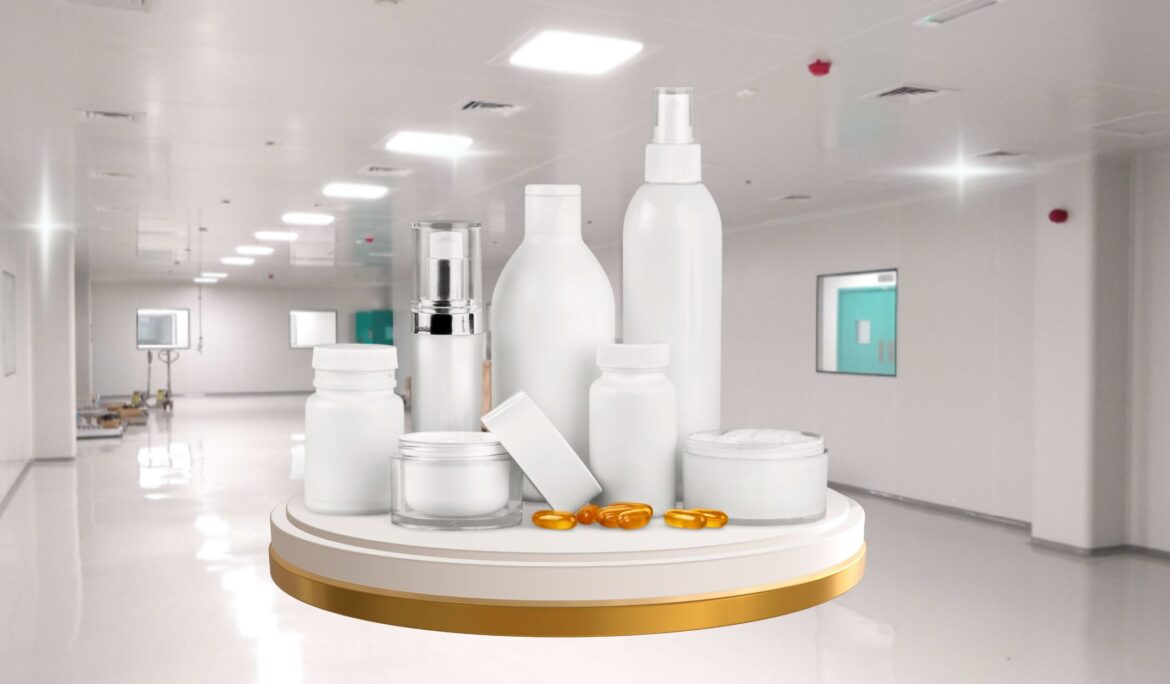Cleanrooms for Cosmetics Manufacturing: Ensuring Safety, Quality, and Compliance

When it comes to cosmetics manufacturing, maintaining the highest standards of hygiene and quality is essential. A single instance of contamination can compromise product integrity, tarnish brand reputation, and erode consumer trust. In such a highly regulated industry, cleanrooms are not just an advantage—they are a necessity. From skincare and makeup to fragrances, cleanrooms safeguard your products from harmful particles, bacteria, and contaminants.This article explores why cleanrooms are indispensable in cosmetics manufacturing and how they contribute to safety, efficiency, and compliance.
What Are Cleanrooms?
A cleanroom is a specially designed environment where airborne particles and contaminants are minimized to ensure optimal cleanliness. Equipped with advanced air filtration systems, cleanrooms maintain a controlled environment essential for industries like cosmetics, pharmaceuticals, and electronics.
Cleanrooms are classified based on their cleanliness level, typically measured by the number of particles per cubic meter. For cosmetics manufacturing, ISO Class 7 or ISO Class 8 cleanrooms are common, ensuring high levels of particulate control.
Why Are Cleanrooms Essential in Cosmetics Manufacturing?
1. Ensuring Product Quality
Cosmetic products require a contamination-free environment to maintain their efficacy, texture, and safety. Cleanrooms eliminate dust, microbes, and impurities that could compromise formulations. Even minute contamination can negatively affect consistency, leading to consumer dissatisfaction.
2. Compliance with Industry Regulations
Regulatory bodies enforce stringent guidelines, such as ISO 22716 for Good Manufacturing Practices (GMP) in cosmetics. Cleanroom for cosmetic products play a pivotal role in meeting these requirements, helping manufacturers avoid penalties, recalls, or reputational damage.
3. Preventing Cross-Contamination
Cleanrooms prevent cross-contamination of ingredients and products by isolating manufacturing processes. This ensures that every batch adheres to the highest quality standards, safeguarding consumer health and satisfaction.
4. Enhancing Shelf Life and Stability
Humidity, temperature fluctuations, and airborne contaminants can degrade cosmetic products. Cosmetic cleanrooms maintain optimal environmental conditions, ensuring formulations remain stable and effective throughout their shelf life.
Key Elements of a Cleanroom for Cosmetics Manufacturing
1. Advanced Air Filtration Systems
Cleanrooms utilize HEPA or ULPA filters to eliminate particles and microorganisms. These systems ensure continuous airflow and prevent contaminants from entering the environment.
2. Controlled Temperature and Humidity
Stable climate control is essential to protect ingredients and products from degradation. Cleanrooms are equipped with systems to maintain precise temperature and humidity levels.
3. Pressure Control Systems
Cleanrooms use positive-pressure environments to keep contaminants out. Negative-pressure setups are used for handling hazardous substances, ensuring safety and containment.
4. Strict Material Handling Protocols
Employees wear protective gear, such as gloves, masks, and gowns, to prevent contamination. Proper training and adherence to handling protocols are critical.
5. Regular Monitoring and Testing
Cleanrooms undergo routine particle counting, airflow measurement, and microbiological testing to ensure compliance with industry standards.
Benefits of Cleanrooms in Cosmetics Manufacturing
1. Enhanced Product Safety
By eliminating contamination risks, cleanrooms ensure the safety of cosmetic products. This minimizes the chances of adverse consumer reactions and builds trust in the brand.
2. Improved Operational Efficiency
Cleanrooms reduce the risk of batch failures and contamination, leading to fewer production delays and cost savings. Streamlined processes also enable faster time-to-market for new products.
3. Strengthened Brand Reputation
Consumers associate quality with hygiene and safety. By investing in cleanrooms, manufacturers can consistently deliver high-quality products, protecting their brand’s reputation.
Conclusion
Cleanrooms are integral to the cosmetics manufacturing process. They ensure compliance with regulations, enhance product quality, and safeguard against contamination. Whether producing skincare, makeup, or fragrances, Cleanroom for cosmetic industry provide a controlled environment that guarantees consumer safety and satisfaction.
For cosmetic manufacturers aiming to thrive in today’s competitive and quality-conscious market, investing in cleanroom technology is essential. By prioritizing cleanliness, safety, and compliance, you not only meet industry standards but also exceed customer expectations—solidifying your position as a trusted brand.




